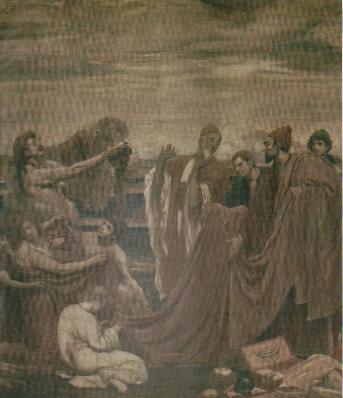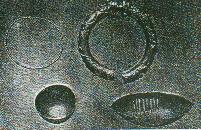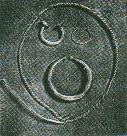WHY?
TRADE BETWEEN PALESTINE AND ANCIENT BRITAIN
 Phoenicians bartering wares with early Britons, from Lord Leighton’s painting in The Royal Exchange, City of London
Phoenicians bartering wares with early Britons, from Lord Leighton’s painting in The Royal Exchange, City of London
ARCHAEOLOGY has established that there was a considerable volume of trade between Palestine and the British Isles, even before the Israelites moved in from Egypt to occupy Canaan. Sir Flinders Petrie, the eminent archaeologist, announced that gold-work from Ireland, dated from 2300 B.C. onwards, had frequently been discovered in his Gaza excavations. Professor Hawkes, even more recently, declared that Egyptian products, of the period 1600 B.C. onwards had been found in Britain and all along the early trade routes from countries of the eastern Mediterranean to north-western Europe. The ore from the tin mines of Cornwall was then greatly in demand in Bible lands.
It is generally accepted that the sea-borne commerce of the first millennium B.C. was largely in the hands of the ‘Phoenicians’, a misleading, loosely used term which embraces not only the merchant mariners of Tyre and Sidon (some of them Canaanites) but also the traders of Israel’s seafaring clans of Dan and Asher, operating from their home ports of Joppa and Dor. It will be recalled that Solomon’s merchantmen co-operated with those of Hiram of Tyre in trading enterprises with ‘Tarshish’ — the maritime region stretching along the Atlantic seaboard, from Spain to the British Isles and Scandinavia.
The pioneers’ trail to Israel’s Appointed Place in the ‘Isles of the West’ had thus been well and truly blazed.



